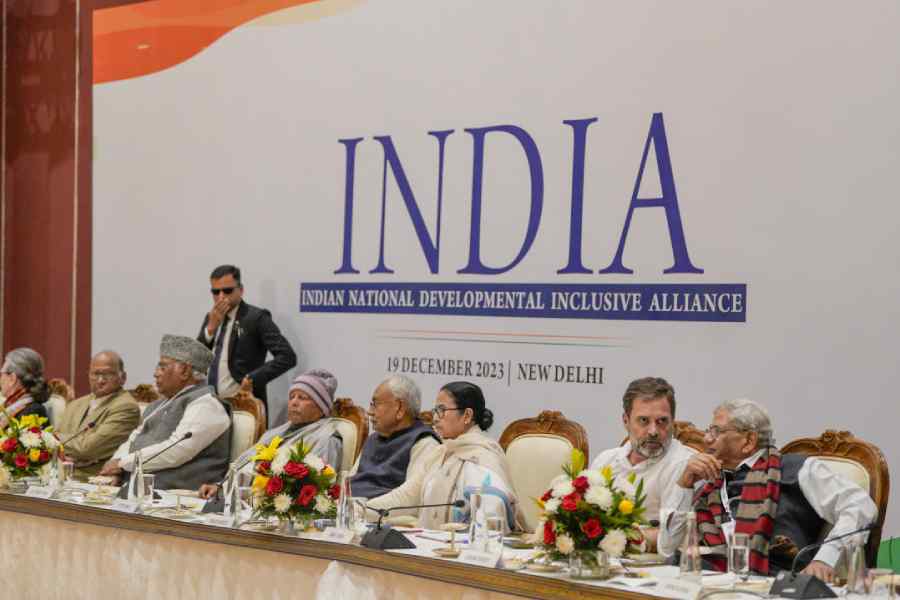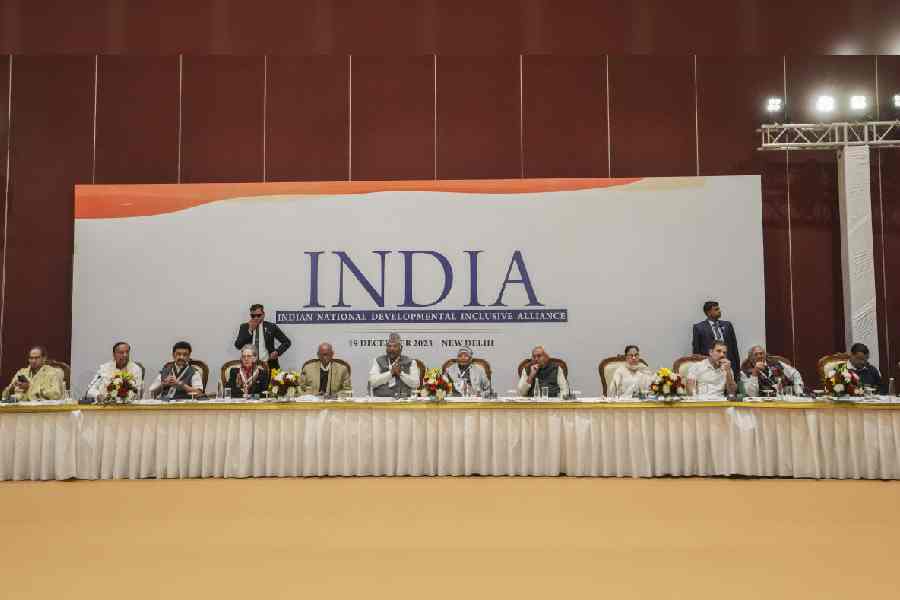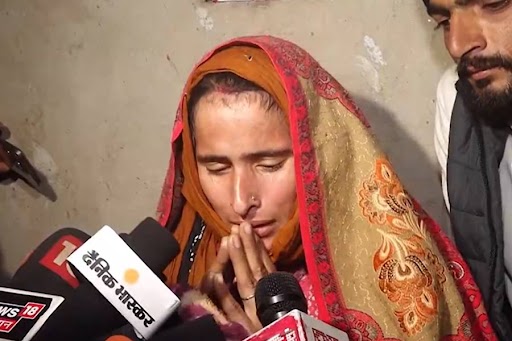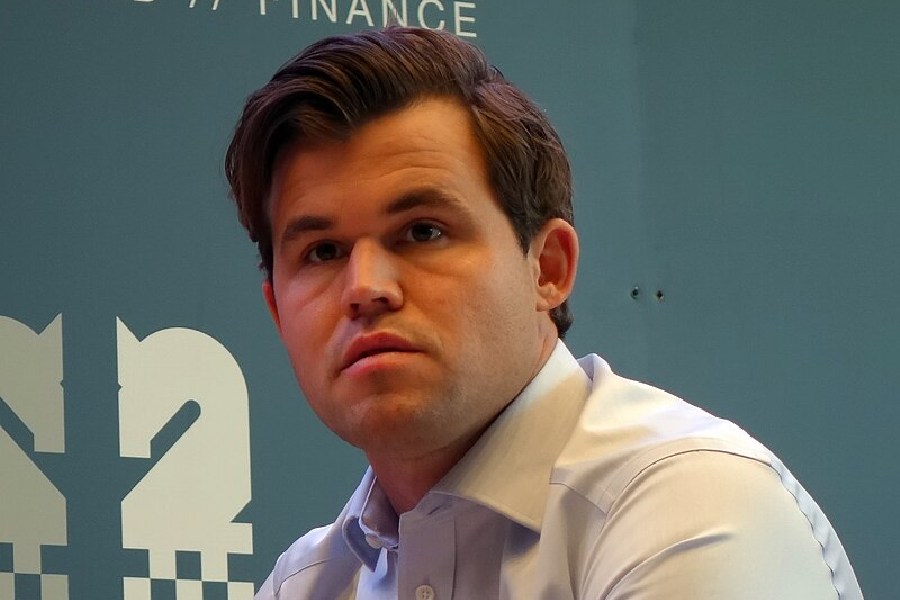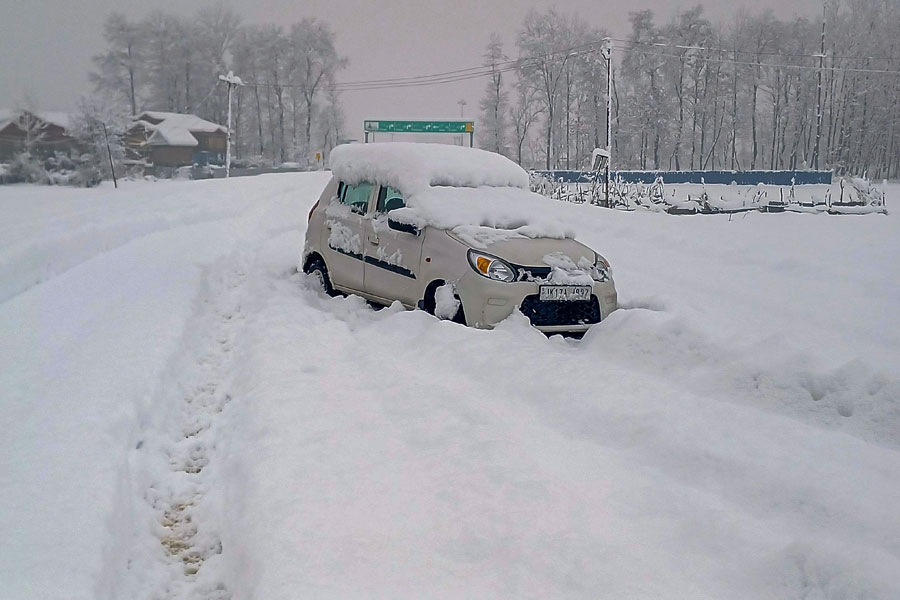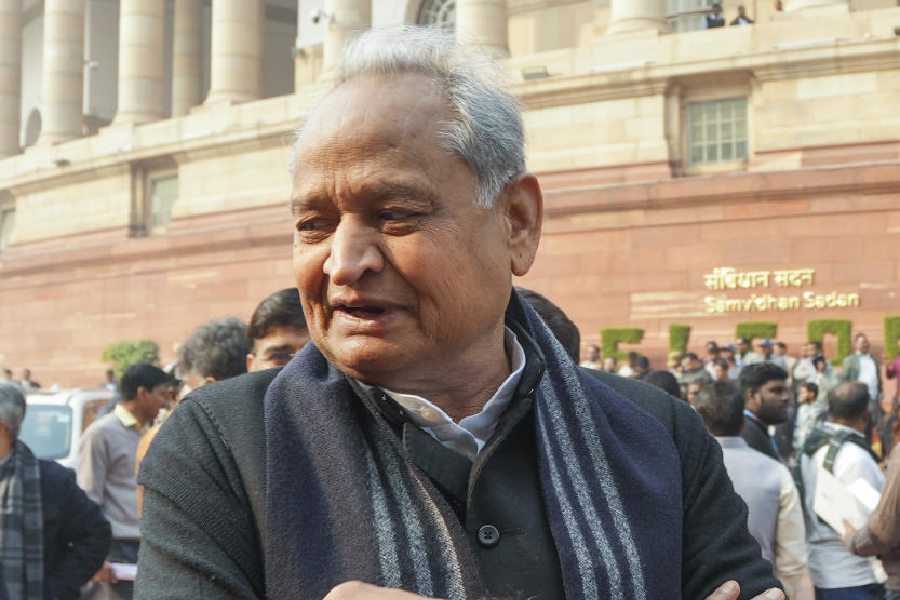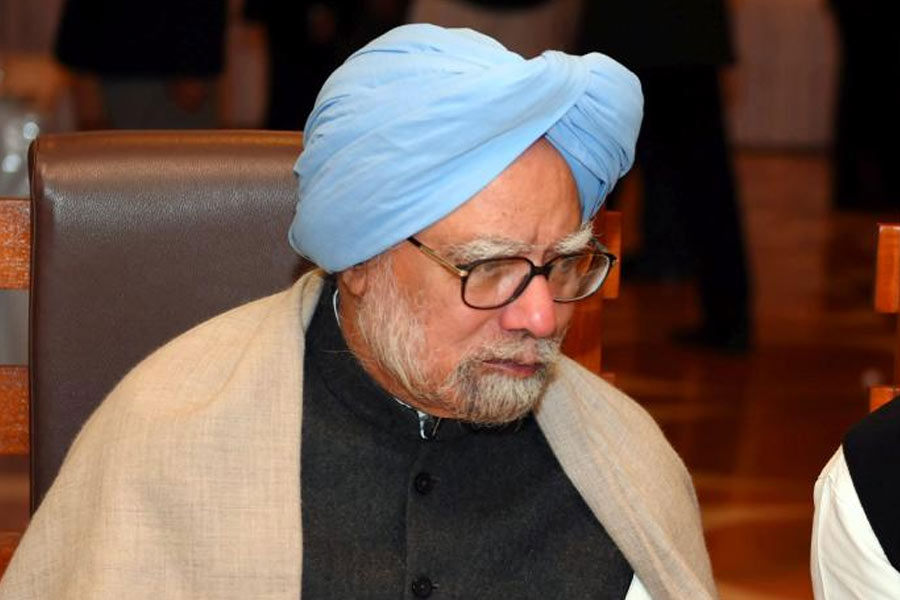The INDIA formation consciously side-stepped Bengal chief minister Mamata Banerjee’s proposal to project Congress president Mallijkarjun Kharge as a rival to Narendra Modi in the battle for 2024, and decided to prioritise seat-sharing and electoral strategy over the next few weeks.
While nothing was formally stated on Kharge — some even dismissed talk of the proposal as untrue — sources said the Trinamul chief had indeed suggested Kharge’s name for the post of INDIA convener who could also be projected as the prime ministerial candidate at a later date. Surprisingly, the idea was endorsed by Delhi chief minister Arvind Kejriwal whose aversion to the Congress is no secret.
Kharge himself shot down the idea because the projection of a candidate for the Prime Minister’s post has never been approved by the alliance partners in principle. At the news conference after Tuesday’s INDIA meet, Kharge responded to the leadership question, saying: “Who would be the Prime Minister is not our concern at this stage. The concern is how to win. If we don’t have enough MPs, the debate on the Prime Minister’s post becomes irrelevant. There is no point talking about the Prime Minister candidate. Modi has developed exceptional arrogance, presuming that only he can rule this country and we have to defeat him first.”
Even the Congress doesn’t want the political battle to be reduced to a personality clash between Narendra Modi and someone else; the dominant belief in the party is that Modi should be countered and cornered on a bunch of critical issues that have cropped up over the last two terms that he has been in power.
Though Mamata was probably trying to sell Kharge as the “Dalit card” and thought it to be an out-of-the-box solution to the leadership question, Kharge politely argued against any caste-based mobilisation.
The overriding concern was doubtless the critical issue of seat-sharing; some parties wanted this process to be over by the year-end. But others saw it as an unreasonable deadline and it was decided to complete the process within the next 20 days. State-wise negotiations between key stakeholders will be conducted mutually and a national-level meeting of partners will happen only to sort out complicated matters.
Being the key player in many states, the Congress has already taken the lead by announcing a National Alliance Committee comprising senior leaders Ashok Gehlot, Bhupesh Baghel, Mukul Wasnik, Salman Khurshid and Mohan Prakash. This team will work in consultation with state leaders to finalise the seat-sharing formula and identify constituencies for distribution among alliance partners.
In the most electorally important state of Uttar Pradesh which is the power backbone of the BJP, an additional problem cropped up because the Samajwadi Party (SP) bluntly opposed the inclusion of the Bahujan Samaj Party (BSP) into the INDIA combine. Sources said Ram Gopal Yadav went so far as to threaten that the SP would exit the coalition if the BSP was accommodated.
While participating INDIA leaders decided to hold at least 8 to 10 joint public meetings across the country over the next few months, the beginning will be made on December 22 when all partners will organise demonstrations across the country against the suspension of their MPs from Parliament.
Kharge said INDIA condemned the undemocratic act of suspending 141 MPs as their only crime was the legitimate demand for a statement on security breach in Parliament by the home minister. He said: “Modi-Shah want to finish democracy. They are roaming around the country, talking about the incident outside but not discussing it in Parliament.”
Rahul Gandhi on his part stressed mass-contact programmes without any delay; he insisted that INDIA leaders should fan out into the field in January itself. Bihar deputy chief minister Tejashwi Yadav said the alliance should identify three or four catchy issues that directly affect people’s lives and a powerful campaign be initiated across the country.
Sources said many speakers at the meeting expressed deep concerns about the manipulation of EVMs, arguing that Modi cannot be ousted without returning to ballot paper polls. Though there was no counter against the EVM theory, many leaders had apprehensions about raising the issue without substantive evidence. It was decided that the INDIA parties would jointly petition the Election Commission expressing doubts about EVM tampering and demanding 100 per cent counting of VVPAT slips.

